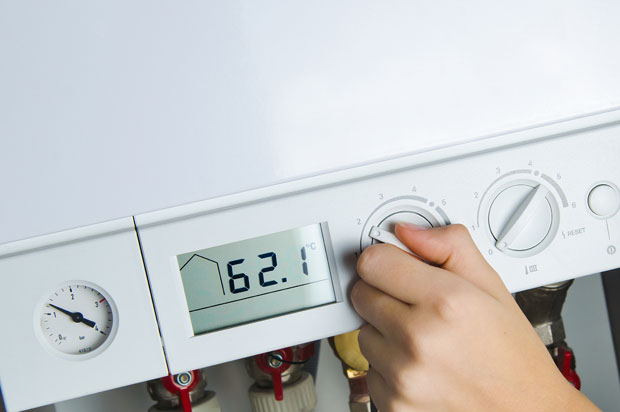Gas bills and boilers
Find out more about how to set up your gas bill, maintaining the boiler and sending meter readings.

Make sure to get your boiler checked
How to choose a gas supplier
This is the company that will send your bills. Use a comparison website to find the best supplier for you. And remember that many gas suppliers will also supply electricity, so there are some good deals out there.
Check your boiler
Legally, your landlord has to provide you with a gas safety certificate before you move in to ensure your boiler is safe to use. Boilers can need a lot of maintenance, so it’s important to have a carbon monoxide alarm in your house, and also remind your landlord to get your boiler professionally checked every year. In addition, considering the reliability and efficiency of your boiler is crucial. If your landlord’s boiler is outdated or prone to issues, it may be worth suggesting an upgrade to install a Viessman boiler, known for its advanced technology and reliability. By advocating for regular maintenance and potentially upgrading to a high-quality boiler like Viessman, you can ensure the safety and efficiency of your home’s heating system, providing peace of mind for you and your household.
To further safeguard your boiler and ensure prompt assistance in case of breakdowns, exploring reliable boiler cover options is a prudent choice. Many suppliers, offer comprehensive boiler cover plans that can be beneficial for both homeowners and renters. However, it’s essential to make an informed decision by considering reviews and understanding the pros and cons of specific cover plans. Conducting a search for eon boiler cover pros and cons can provide valuable insights from users, helping you assess the reliability and effectiveness of the coverage before making a decision. This proactive approach ensures that your home’s heating system is not only safe but also well-protected against unexpected issues.
Sending the first meter reading
Once you’ve chosen a supplier, contact them and give them your first gas meter reading. Your gas meter should be in the house, or communal area if you live in a flat. You’ll be able to tell the difference between the gas and the electricity meter as a gas meter is measured in cubic feet (ft3). If you live in a flat and you can’t tell which gas meter is yours, either ask your landlord or your supplier. Note down the numbers on the meter box from left to right and call your gas supplier.
Paying gas bills
It’s important to take regular meter readings to give you an idea of how much energy you use and help you budget accordingly. If you don’t, you’ll get an estimated bill, which tends to be more expensive. You can arrange how you want to pay your bills with your supplier, but it’s essential to be prepared for the costly winter months, so make sure you put aside money to cover them.
Next Steps
- Chat about this subject on our Discussion Boards.
By
Updated on 12-Jan-2016
Photo by Shutterstock.
No featured article










